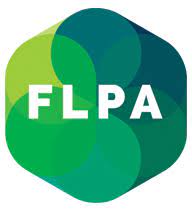The short answer to this question is yes. You do not need to be divorced before obtaining a property settlement. Both securing a divorce and obtaining a property settlement are two separate matters, and you do not need one to get the other. However, it should be noted that until a divorce is granted, the time limitation for initiating property settlement proceedings doesn’t begin.

Family Law – Financial Settlement
You could be separated but not divorced for ten years and still not have finalised your financial separation. Leaving a lengthy period between your separation and property settlement could significantly impact your divorce settlement agreement, particularly if you have accumulated superannuation or other assets in that time. Once you are divorced, you will only have 12 months to finalise a property settlement.
Divorce In Australia – Property Settlement Before Divorce
We recommend getting a property settlement done as soon as possible. The Family Law Act 1975 (Cth) requires that you have been separated for 12 months to apply for a divorce. However you can reach a property settlement agreement before divorce. You can do this at any time, as soon as the very next day after your split.
Family Law – Divorce Property Settlement
Divorce and Property Settlement
Property settlements in divorce involve the division of assets and liabilities between spouses after their marriage has ended. This process of divorce/financial settlement Australia-wide is governed by the Family Court and aims to ensure a fair and equitable distribution of property. The settlement can cover a wide range of assets and financial resources, including real estate, superannuation, investments, bank accounts, and personal belongings, as well as debts and liabilities.
The court considers various factors when determining the divorce/ property settlement, such as:
- Direct financial contributions of each party
- Indirect financial contributions of each party
- Non-financial contributions of each party
- The future needs of each spouse (such as child support)
- The welfare of any children involved
It’s crucial to finalise the property settlement within 12 months of obtaining a divorce to avoid legal complications and ensure that both parties can move forward with their lives. It is recommended to seek legal advice early in the process can help protect your interests and facilitate a smoother resolution.
Binding Financial Agreement: Divorce
A Binding Financial Agreement (BFA) in the context of divorce and financial settlement Australia wide is a legally enforceable document. This document type outlines how assets and liabilities will be divided between spouses. Under Australian law, BFAs can be made before, during, or after a marriage or de facto relationship. They provide a way for couples to settle their financial affairs without needing to go to court.
Binding financial agreements are governed by the Family Law Act 1975 (Cth) and must meet specific requirements to be valid. Each party must obtain independent legal advice, and the agreement must be signed by both parties and their lawyers. The BFA can cover various financial matters, including property division, spousal maintenance, and superannuation entitlements.
Using a BFA can offer certainty and control over financial settlements, helping to avoid lengthy and costly court disputes. However, it’s essential to ensure the agreement is fair and complies with legal standards, as a court can set aside a BFA if it finds evidence of fraud, duress, or significant changes in circumstances. Consulting with a family lawyer can help you understand your rights and obligations regarding divorce/financial settlement Australia wide and ensure the agreement is tailored to your specific needs.
Divorce, Family Law, Property Settlement & Financial Settlement FAQs
Can I get a divorce without financial settlement?
Yes, you can get a divorce without finalising a financial settlement. Securing a divorce and obtaining a property settlement are separate legal processes. However, it is important to resolve financial matters promptly to avoid complications and to ensure a fair distribution of assets.
What is the divorce settlement process in Queensland (QLD)?
In Queensland, the divorce settlement process involves identifying and valuing all assets and liabilities, assessing contributions from each party, considering future needs, and negotiating a fair division. If an agreement can’t be reached, you may need to apply to the Family Court of Australia for a financial order.
Do you have to split assets in a divorce?
Yes, in most cases, assets will need to be split in a divorce. The division aims to be fair and equitable, considering both financial and non-financial contributions, future needs, and the welfare of any children involved.
What is a financial order in divorce?
A financial order (divorce) is a legally binding decision made by a court regarding the division of assets, liabilities, and financial resources between divorcing spouses. It can include orders about property settlement, spousal maintenance, and superannuation splitting.
How does the divorce settlement process work?
The divorce settlement QLD-wide typically involves:
- Identifying and valuing all assets and liabilities.
- Assessing each party’s contributions (financial and non-financial).
- Evaluating future needs and circumstances.
- Negotiating an agreement or, if necessary, applying to the court for a financial order.
What happens if I delay my financial settlement after a divorce?
Delaying a financial settlement can lead to complications, such as changes in asset values, accumulation of new assets or debts, and potential legal disputes. In Australia, you have 12 months from the date your divorce is granted to finalise a property settlement. After this period, you may need court permission to proceed.














